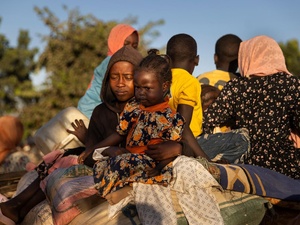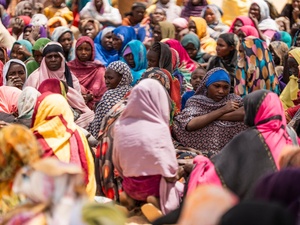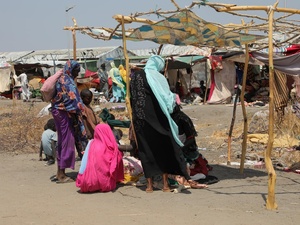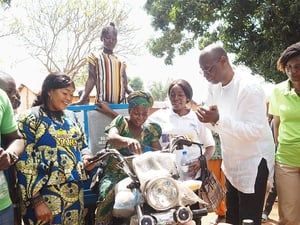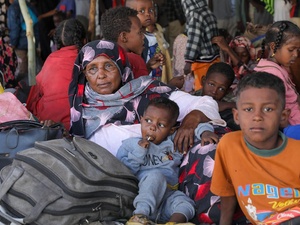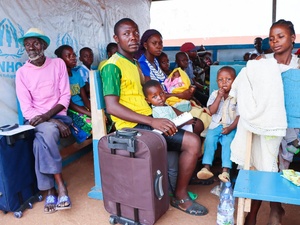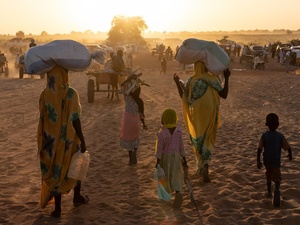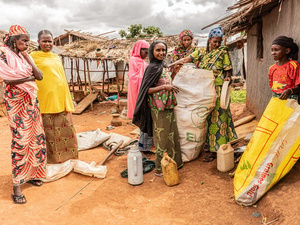Central African refugees stuck on border with DR Congo
Central African refugees stuck on border with DR Congo
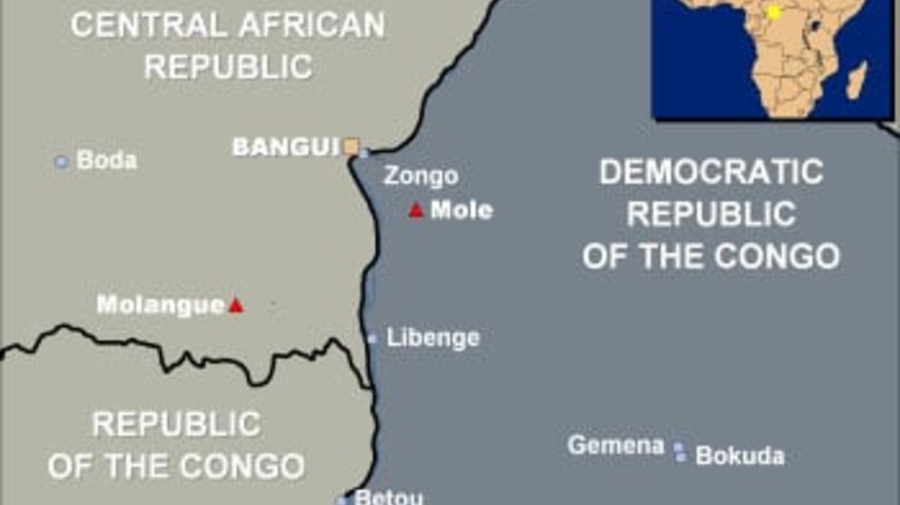
ZONGO, Democratic Republic of the Congo, October 30 (UNHCR) - Terrified residents fleeing fighting in the Central African Republic (CAR) capital, Bangui, are being prevented from escaping to the neighbouring Democratic Republic of the Congo (DRC), say newly arriving refugees.
Those who managed to cross over to the Congo side of the Ubangi river in motor-powered canoes told UNHCR staff that an unspecified number of people were stuck on the Central African side of the border after CAR government forces barred them from crossing the river. They also allege that those fleeing Bangui are subject to harassment by soldiers who try to extract money from those attempting to cross.
UNHCR workers in Zongo, on the Congolese side of the border, said rebels of MLC (Mouvement pour la Libération du Congo), who control the area, on Wednesday dispatched emissaries to the other side of the river to persuade the CAR military to allow the refugees to flee.
Twenty-one Central African nationals and 147 Congolese have arrived in the DRC since fighting erupted in Bangui between government forces and alleged coup plotters.
The UN refugee agency office in Zongo has obtained agreement from the rebel MLC authorities to open a humanitarian corridor for a possible further influx of CAR refugees. Food, water and other basic commodities for the new arrivals were sent to Zongo from Kinshasa on Wednesday. UNHCR is opening three registration centres in Zongo to record the new arrivals and get information about their ethnic profile.
An overwhelming majority of the newly arrived refugees are of the Yakoma ethnic group, as are most of the Central African refugees who had fled to the DRC during earlier upheavals. Only a handful was from a rival ethnic group. UNHCR said it intended to screen and separate refugees from the rival groups and weed out armed elements from the civilian population to prevent possible clashes between opposing groups. The makeshift registration centre in Zongo has been revamped with new tarpaulin and can now accommodate 200 people.
Among the new arrivals, only five have so far moved into the transit centre while most of them have chosen to stay with relatives in the border area. The UN refugee agency has distributed jerry cans, mats and blankets to them.
Meanwhile, the situation in Bangui remains unclear, with some refugees reporting that parts of the city were now under rebel control while other areas were in the hands of troops loyal to President Patassé. Refugees in the DRC said many people were holed up in their houses, afraid to venture out because of fighting and air raids.
UNHCR has not been able to trace the whereabouts of some 10,000 urban refugees in Bangui from the DRC, Chad, Burundi and Rwanda, many of whom lived in the disputed northern districts of the capital.


